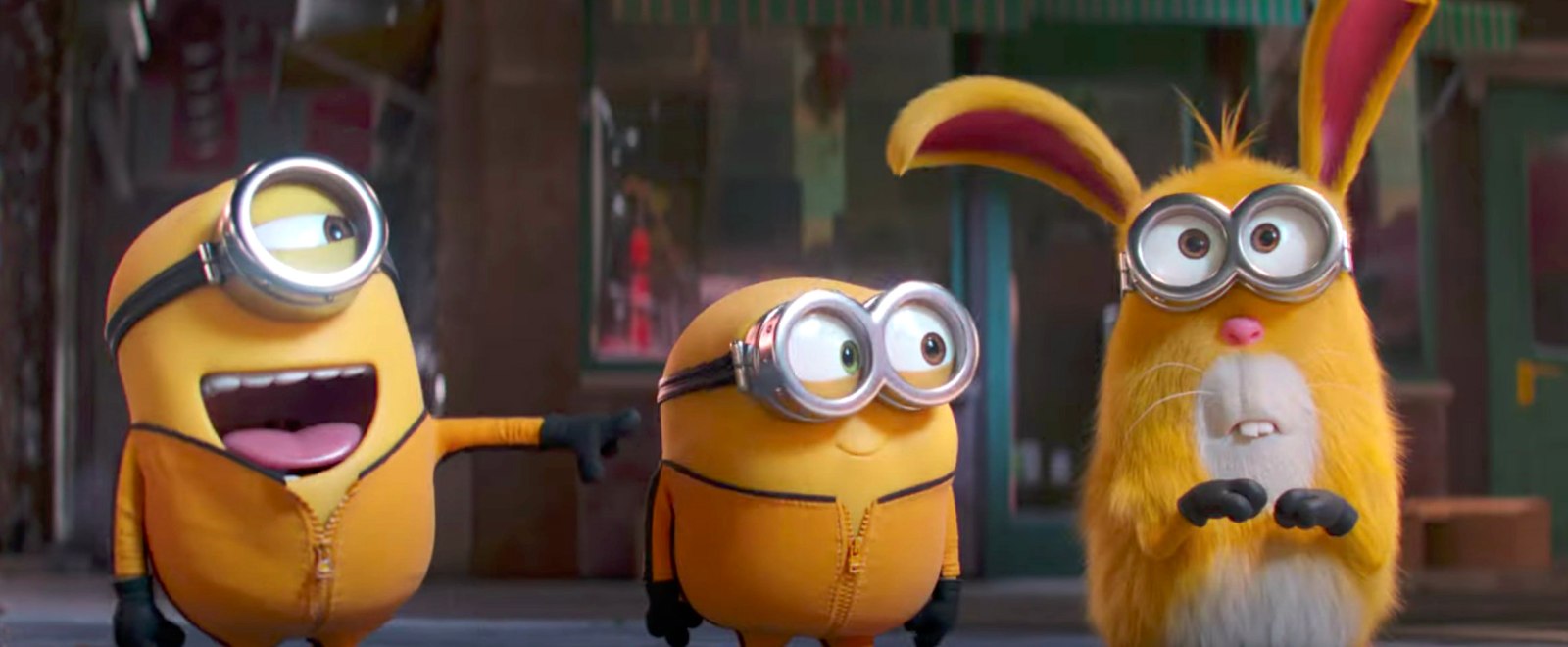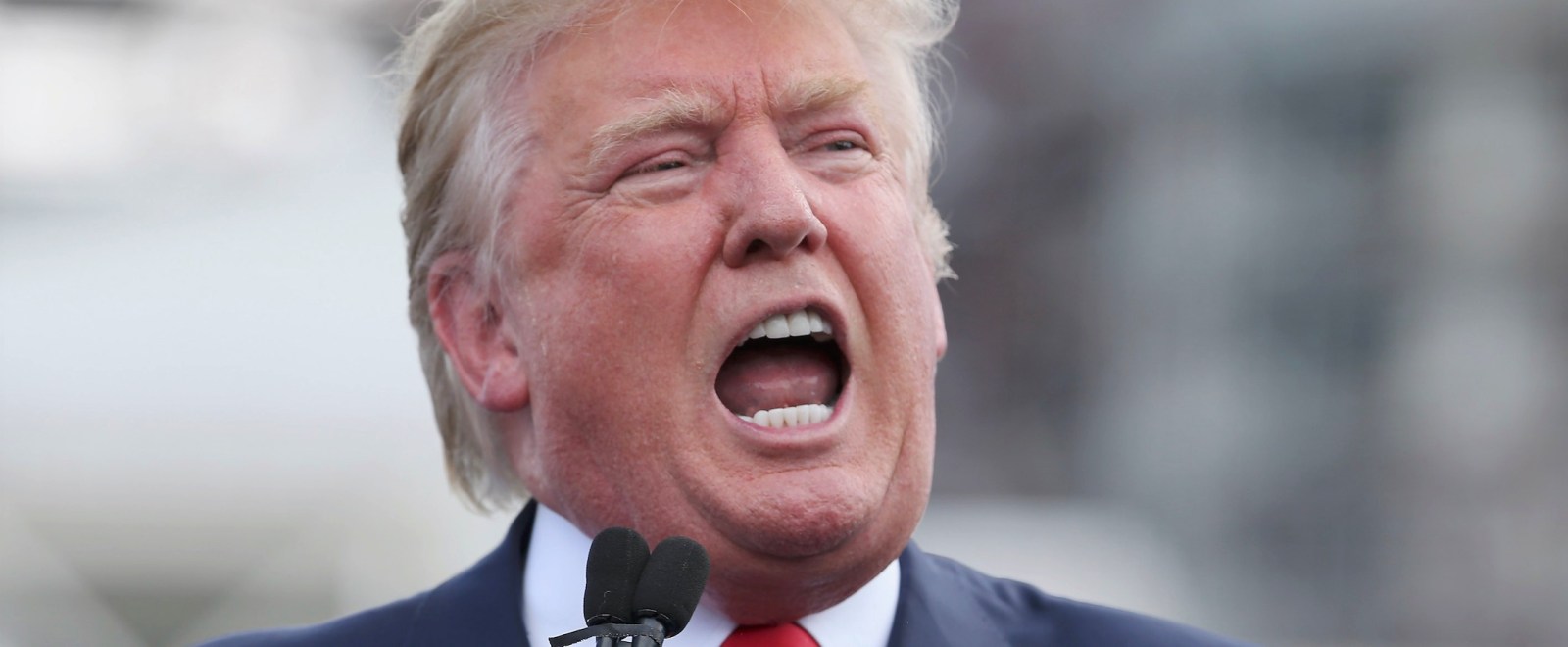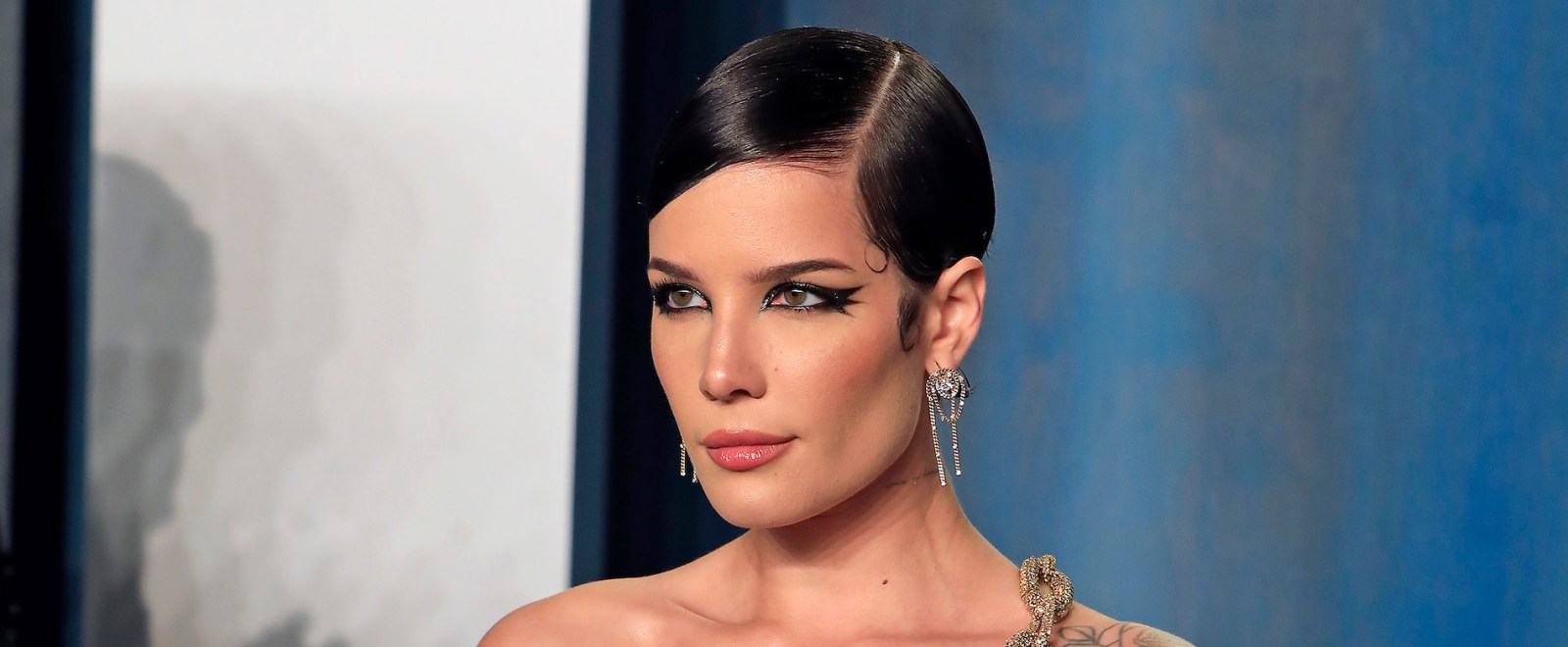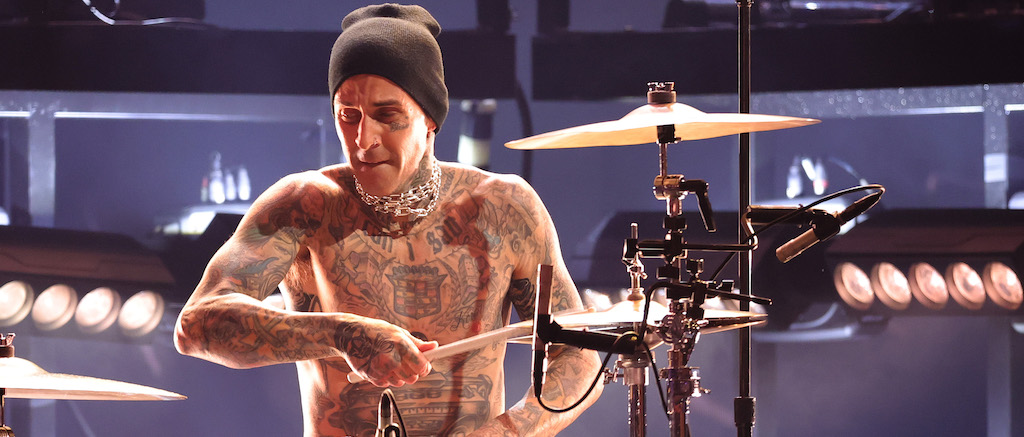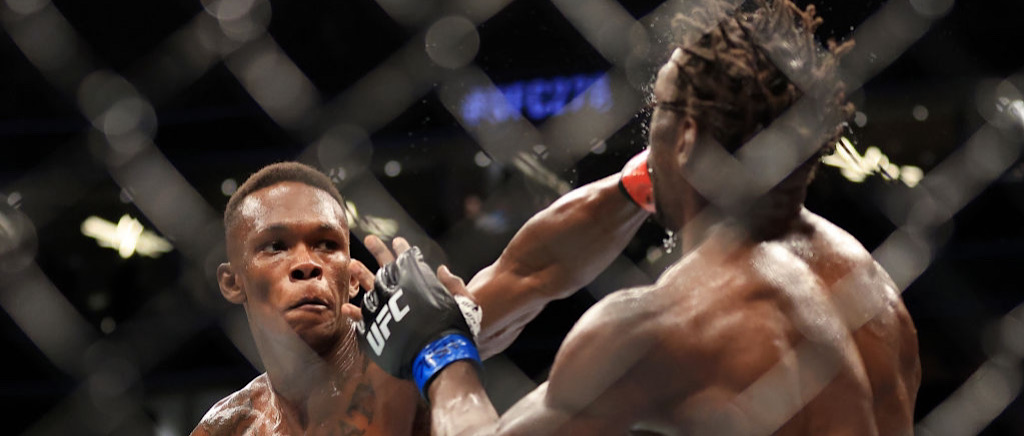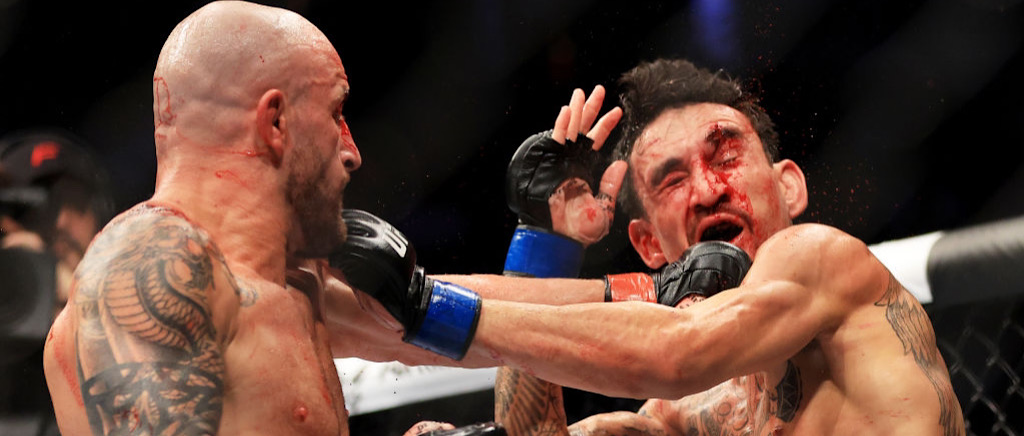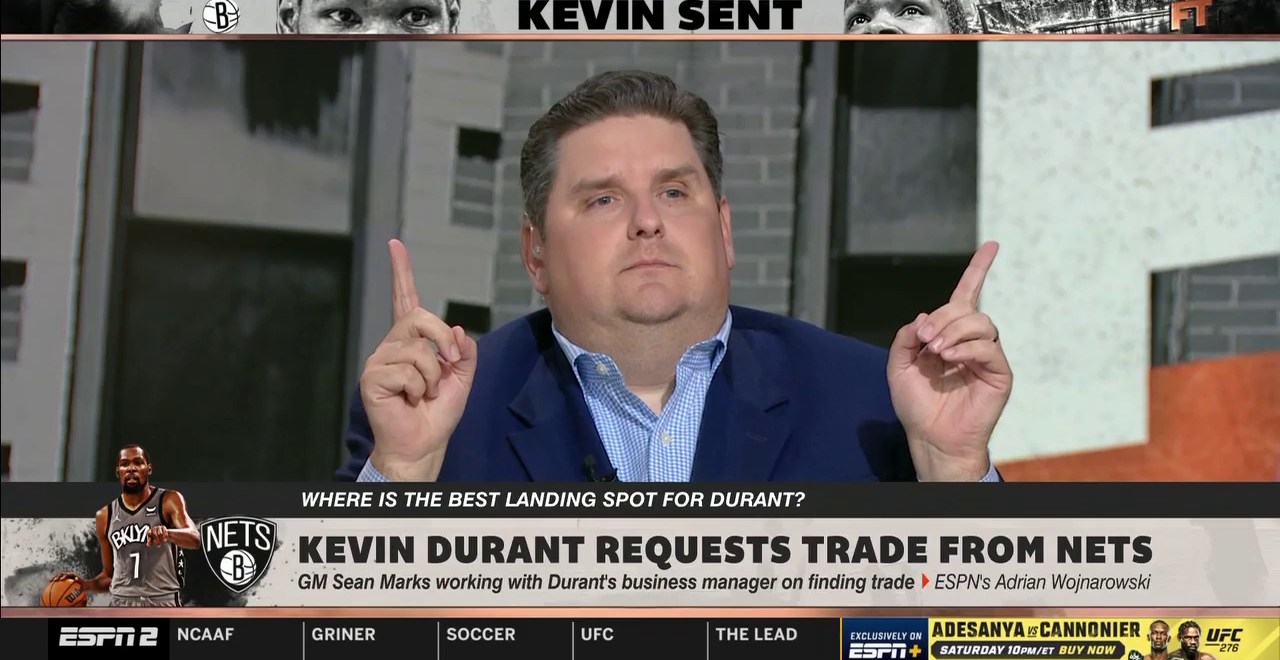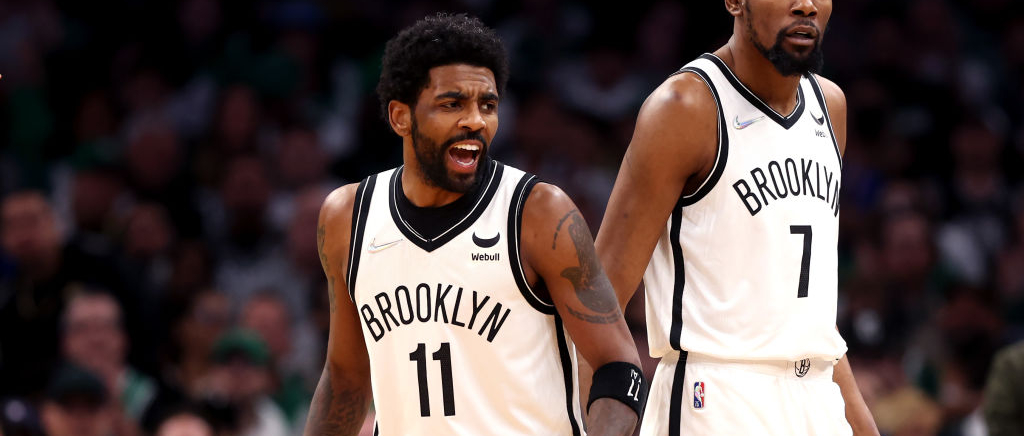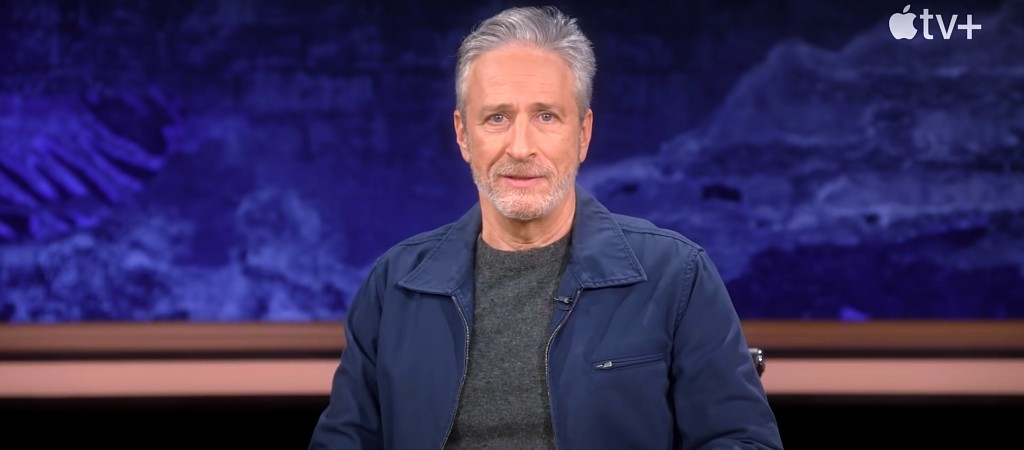Mania, as defined by the dictionary and not in its deeper psychological nuance, is “an excessive enthusiasm or desire; an obsession.” Otherwise called compulsion. There is nothing compulsive about Toronto Raptors president Masai Ujiri, and that’s worth the reminder right off the top given the language that’s been tied to the franchise and their purported interest in the quixotic darling of this trade market, Kevin Durant.
That the Raptors have been described by Adrian Wojnarowski, one of the four horsemen of free agency, as “lurking” around the conversations between the Nets and the forerunner franchises on Durant’s own destination list of the Suns and the Heat makes sense. Toronto likes to be in the mix. It’s a vital constant for a franchise still considered an outlier as it is a signal of seriousness, to keep your team top of mind for potential collaborators and completion alike, and it isn’t just going through the motions. It’s much more likely that Ujiri and Raptors GM Bobby Webster have walked away from more deals than they’ve gotten done in their tenures not because they couldn’t close them, but because they couldn’t be compelled to.
The summer 2018 agreement that saw Kawhi Leonard and Danny Green come to Toronto for Raptors cornerstone DeMar DeRozan, Jakob Poeltl, and a protected first-round pick had the feeling of being finished on a knife’s edge. It was sudden, sharp and clean. The possibility of Durant to Toronto has none of that feeling because the team is so wholly in a different place.
Brooklyn wants big names and picks for Durant, team owner Joe Tsai has made that clear. Tsai’s been backed into a corner by the player-led super team he paid a lot to build — he lost James Harden mid-season and it seems inevitable Kyrie Irving will want out after Durant makes his exit. For Toronto to satisfy his reported asking price, the team would have to lose two or three players crucial to its core culture and talent — some mix of OG Anunoby, Gary Trent Jr., and Scottie Barnes — and forfeit first-round draft picks, potentially for the next three consecutive years.
With Leonard, the Raptors roster was already competitive and incredibly deep. The price was steep in lore and the kind of production the team had seen up to then, but the payoff was immediate. It was a team already looking at less years together in front than behind them, too. With Durant, this Toronto team is one that’s only begun to get its feet under it. Barnes has developed in joyful, extraordinary strides; Trent Jr.’s become the team’s most reliable shooting threat (61% effective on his catch and shoot production, 51% on shooting overall) and Anunoby’s season-over-season honing of his in-game I.Q. has proved unnerving for some of the league’s most unflappable players.
Even if the return is one the best basketball players in history, the Raptors could still come up short. Beyond actual, physical roster spots — and there’s no guarantee a deal for Durant wouldn’t wind up including a sacrosanct star like Pascal Siakam — they’d have to scramble to fill while floating Durant’s $42,969,845 2022-2023 salary, it’s a deal that would forfeit the unexpected growth of last season. Last summer, in his first in-person presser back in Toronto after the team returned from Tampa, Ujiri stressed how crucial he considered it to create a home-grown, development intent team.
That was, he stressed, the way Toronto was going to get back to title contention. Obviously, a player like Durant offers an opportunity to get there a lot faster, but what Ujiri spoke about was larger than a one-off, it was foundational. Whether you want to call that approach “vision 6’9,” as Raptors fans have affectionately dubbed it, or simply the future of a post-Kyle Lowry team, it would end with Durant.
Toronto has never been a feast or famine team, it can’t afford to be. Yes, the perspective on the city and the franchise being a basketball destination is changing, but it’s a slow process. The NBA is already fickle, and in the last few seasons, superstars have taken to hop-scotching among marquee and big market teams. There’s no guarantee of the Raptors drawing stars or dependable role-players at any point during Durant’s potential stint with the franchise, and even if Barnes was somehow left out of the deal, there would be a drought of incoming young talent. That has been an important resource for Toronto, both in generating culture and as a means of showcasing how good players can get in the team’s developmental system. That would get put on hold, too.
Side-by-side, the Leonard and Durant opportunities look the same. While Durant’s under contract for four years, there’s no way to know how he would respond to going to a place that isn’t on his list of preferred destinations — perhaps he, like Leonard, could be a one-and-done before seeking a different challenge. Still, it was a surer thing with Leonard, even with the questions that proved to be unfounded about his health or his willingness to play, than it is, at this moment, with Durant.
Clearly, Durant wants a competitive win-now team, but he’s left two teams on especially bitter terms and looks set to do that with a third. Could Toronto, in its culture or “everyone has to do everything” approach to play, prove a good fit for a competitor like Durant, who might only need stability that frees him up to play basketball, the thing that he’s best at? Absolutely. But it still feels like a bigger gamble than the Leonard deal ever did.
Good leaders know when to change their minds, and Ujiri has shown that. He’s shrewd, rational, with a competitive bent and compassionate drive. All to say the deal is by no means impossible or off the table. Ujiri turned the Raptors into champions and Toronto into a sports city demonstratively proud of itself, but he’s always been the first one to say it isn’t enough, that he’s not finished. He’s hinted at a WNBA expansion in Toronto and has a hand in generating excitement around Canada Basketball’s men’s team and its bid for international notoriety. He is a person who wants to build beyond his own legacy. Durant, and the potential of another title for the Raptors, lends pretty well to that.
But while free agency does rattle and rush front offices, the narrative that Ujiri is more inclined to make a move because he’s been in this hot seat before implies a kind of desperation that the Raptors don’t have right now. Toronto and Ujiri being in the mix of the NBA’s most chaotic occasion doesn’t mean they’ve forgotten the most important thing about any big party: knowing when it’s time to make an exit.
